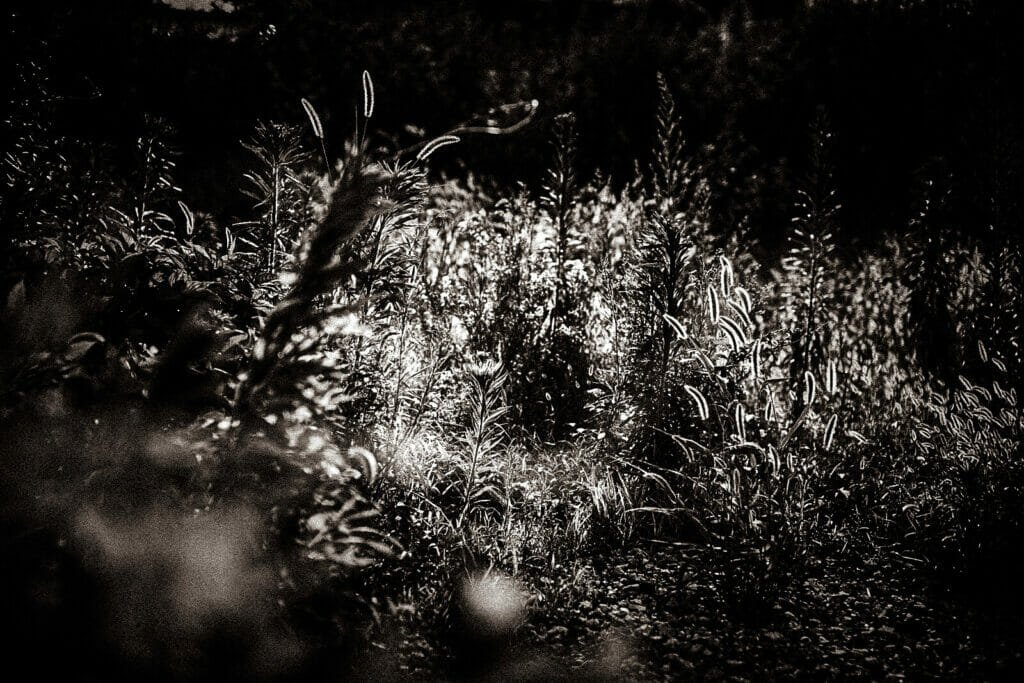The air smells of dry leaves and the subtly spiced, slightly sweet aroma that escapes them as they decay. From within the leaf litter and from every tussock and thicket, soft stridulations waft like lithe wisps of wood smoke on the gentle evening breeze, the crickets calling tenderly under the waxing crescent moon.
Their easy manner and moderation stand in marked contrast to the riotous abandon of the cicadas of just a few weeks ago. They filled every August afternoon with a great noise, delivered with an intensity befitting the season’s powerful heat. They have not yet disappeared entirely, but are fading quickly, and soon the season’s last cicada will sing to an empty room.
But while the summer’s insect voices are fading to silence, the autumn chorus is building with a soft determination in the underbrush. And as we pay attention to the crickets on quiet autumn evenings, listening attentively to their tremulous calls in this, their own short season of prominence, we may guess that the significance of these sounds extends well beyond what we, as humans, can understand.
These insects have lives to which we can relate in only the most abstract of terms. Their existence is almost entirely alien to us.
Take lifespan, for example. Most species of cricket only live two or three months, which means that, on average, most humans will outlive your typical cricket by a factor of at least three hundred and fifty.
We can’t really grasp a life so brief, and if we try to imagine our own lives scaled down to just ten weeks in length, it becomes absurd. You’d hit puberty about twelve days after birth, graduate from university about ten days later, and arrive at retirement age with just a few days left to live at nine and a half weeks.
Of course, a cricket’s life and a human’s life have precious little in common, so admittedly it’s not the most useful comparison, but its value lies in reminding us how little we really know and understand in this world. It reminds us to appreciate the fleeting nature of life, and to consider that there is so much that we cannot directly perceive, but that is still very present and real.
These early autumn crickets will die off before the year is over, and we will know no more about them and their habits by then than we do now. What we can do for them, at very least, is to appreciate them while they’re here, as they sing from the undergrowth and remind us through their own ephemerality that, though we have more time here than they, our stay is every bit as limited.


